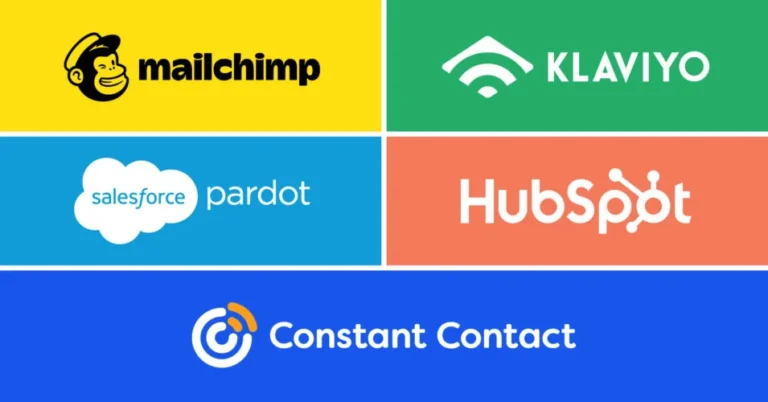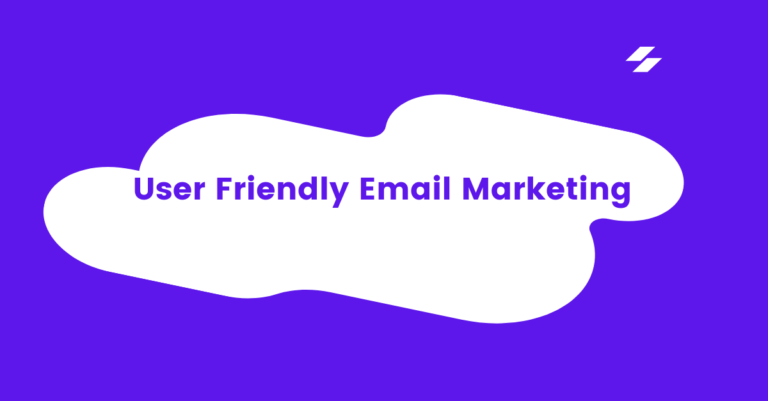![]()
![]()
![]()
Choosing the Right Email Marketing Platform
Choosing the right email marketing platform for your small business involves considering multiple facets—from user-friendliness and automation features to integrations and cost-effectiveness. By meticulously evaluating these elements, you can select a platform that not only meets your current needs but scales with your growing business.
Remember, the goal is to find a tool that empowers you to connect with your audience effectively, driving engagement and fostering growth.

Why Email Marketing Matters for Small Businesses
For small businesses with limited resources, email marketing offers a direct line to your customers. Unlike social media, where algorithms can restrict visibility, email allows you to communicate directly with subscribers who have expressed interest in your products or services. A well-executed email marketing strategy can:
- Increase brand awareness
- Drive website traffic
- Promote products and services
- Enhance customer retention
- Generate leads and sales
The success of your email marketing efforts largely depends on choosing the right platform to manage your campaigns efficiently.
Key Features to Look for in an Email Marketing Platform
Before diving into specific platforms, it’s important to understand the key features that small businesses should look for when selecting an email marketing tool:
1. Ease of Use
For many small business owners, time and resources are limited, so finding a platform that is easy to set up and use is essential. Look for a user-friendly interface, drag-and-drop editors, and pre-designed email templates that allow you to create professional emails quickly.
2. Automation
Time is money, and automation is your best friend when it comes to saving both. Look for platforms that offer automation features. This could include welcome series, abandoned cart reminders, or birthday greetings. It’s like having a tireless assistant who works 24/7 to keep your audience engaged.
3. Segmentation
Effective email marketing requires targeting the right audience with the right message. A good platform will allow you to segment your email list based on demographics, purchase history, engagement, or other factors. Segmentation leads to higher open rates and better conversion results.
4. Analytics and Reporting
Tracking the success of your email campaigns is critical to understanding what works and what doesn’t. Look for platforms that provide detailed analytics, including open rates, click-through rates, bounce rates, and conversion rates. These insights will help you refine your strategy for better results.
5. Scalability
As your business grows, so will your email list. Choose a platform that can scale with your needs, offering affordable plans that accommodate a growing list of subscribers without significantly increasing costs.
6. Integration with Other Tools
Your email marketing platform should integrate seamlessly with other tools you use, such as CRM software, eCommerce platforms, or social media apps. This allows for smoother operations and the ability to sync customer data across platforms for more personalized email marketing.
Affordable Email Marketing Platforms for Small Businesses
Now that you know what features to look for, let’s explore some of the best email marketing platforms for small businesses. Each offers a unique set of features, pricing models, and benefits that cater to different needs.
1. Mailchimp
Mailchimp is a favorite among small business owners for its simplicity and versatility. With a user-friendly interface and robust free plan, it’s a great option for beginners.
- Free Plan: Up to 500 subscribers and 1,000 emails per month.
- Key Features: Drag-and-drop email builder, basic automation, segmentation, and detailed reporting.
- Best For: Small businesses just starting out who want a straightforward platform without spending a lot upfront.
Mailchimp also offers a range of paid plans as your list grows, with advanced features like A/B testing, retargeting ads, and advanced audience insights.
2. MailerLite
MailerLite is another affordable option that balances ease of use with powerful features. Its minimalist interface makes it ideal for businesses that don’t want to be overwhelmed by too many options.
- Free Plan: Up to 1,000 subscribers and 12,000 emails per month.
- Key Features: Email automation, landing page builder, A/B testing, and advanced segmentation.
- Best For: Small businesses looking for advanced features like automation and landing pages without paying a high price.
MailerLite also offers a generous free plan, making it one of the best choices for growing businesses with a limited budget.
3. Moosend
Moosend is a budget-friendly option that doesn’t skimp on features. Known for its affordability and scalability, Moosend is ideal for businesses looking for professional-grade tools at a lower price point.
- Free Plan: 30-day free trial.
- Paid Plan: Starts at $9/month for unlimited emails to 1,000 subscribers.
- Key Features: Advanced automation, segmentation, real-time analytics, and customizable email templates.
- Best For: Small businesses that want a powerful platform with advanced features like workflow automation and comprehensive analytics at a competitive price.
Moosend’s Pro plan includes unlimited emails, automation, and reporting, making it one of the most affordable platforms with premium features.
4. Sendinblue
Sendinblue offers an interesting pricing model based on the number of emails sent, rather than the number of subscribers. This makes it a cost-effective option for businesses with large lists that send fewer emails.
- Free Plan: Unlimited contacts and up to 300 emails per day.
- Paid Plan: Starts at $25/month for up to 20,000 emails per month.
- Key Features: Advanced segmentation, email automation, SMS marketing, and CRM tools.
- Best For: Businesses with large email lists that don’t need to send emails frequently.
Sendinblue also offers transactional emails and SMS marketing, making it a comprehensive platform for businesses looking to diversify their marketing channels.
5. ConvertKit
ConvertKit is designed specifically for creators, such as bloggers, YouTubers, and artists. Its focus on building relationships through email makes it an excellent platform for content-driven businesses.
- Free Plan: Up to 1,000 subscribers with unlimited emails.
- Paid Plan: Starts at $15/month for 300 subscribers.
- Key Features: Automation funnels, visual sequence builder, tag-based segmentation, and integrations with eCommerce platforms.
- Best For: Content creators and small businesses focused on nurturing relationships with subscribers.
ConvertKit’s visual workflow builder is easy to use, allowing for the creation of complex email sequences to engage and convert subscribers.
How to Choose the Best Platform for Your Small Business
When selecting the right email marketing platform, it’s essential to consider your specific needs, budget, and long-term goals. Here’s a step-by-step process to guide you:
1. Define Your Goals
What do you hope to achieve with email marketing? Are you focused on building relationships, driving sales, or increasing brand awareness? Your goals will determine the platform and features you need.
2. Evaluate Your Budget
If you’re just starting out, free plans from platforms like Mailchimp or MailerLite may be sufficient. As your list grows, factor in how much you’re willing to spend on email marketing.
3. Consider Your Technical Skills
If you’re a beginner, look for platforms that offer easy-to-use interfaces and pre-designed templates, like Mailchimp or MailerLite. If you’re more advanced, consider platforms with more robust automation and segmentation capabilities like Moosend or ConvertKit.
4. Analyze Feature Sets
Compare the features offered by different platforms. Automation, segmentation, analytics, and integration with other tools are essential. Make sure the platform can scale with your business.
5. Test Platforms with Free Trials
Most platforms offer free trials or free plans. Use this opportunity to test out the platform, explore its features, and ensure it meets your needs before committing.
Conclusion
Choosing the right email marketing platform for your small business is a critical decision that can impact your marketing success. By considering your goals, budget, and technical skills, you can find a platform that fits your needs and helps you grow. Whether you’re looking for simplicity with Mailchimp, advanced features with Moosend, or creator-focused tools with ConvertKit, there’s a solution that’s right for your business.
Investing time in selecting the right platform will pay off in the long run as you build stronger relationships with your audience and drive business growth through effective email marketing.



